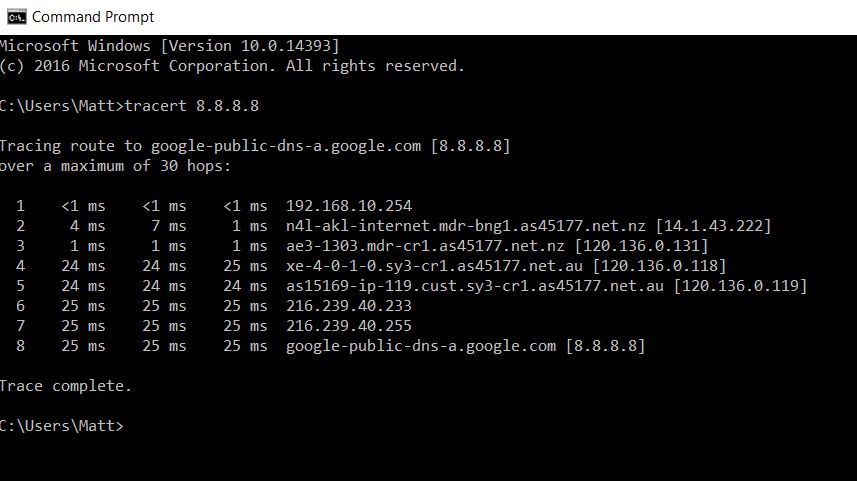In the vast landscape of the internet, every device connected to the network is assigned a unique IP address.
This address serves as a digital identifier, allowing data packets to be sent and received across the web.
But did you know that it’s possible to uncover valuable information about an IP address, such as its geographical location?
In this article, we will explore the fascinating world of reverse IP address lookup geolocation and provide you with insights on how to utilize this technique effectively.
Can I Geolocate an IP Address?

Indeed, geolocating an IP address is not only possible but also quite useful. IP geolocation is the process of determining the physical location of an IP address on the globe.
It involves mapping the IP address to a specific geographic region, city, or even latitude and longitude coordinates. This can be achieved by leveraging databases that associate IP addresses with corresponding locations.
Several websites and services offer IP geolocation services, providing you with the ability to uncover the approximate geographical details of an IP address. Some popular options include:
- IPGeolocation.io
- Geobytes
- Whois.is
- IP2Location
- MaxMind
To utilize an IP geolocation service effectively, you need to know the IP address you wish to geolocate.
Once you have the IP address at hand, simply enter it into the service’s website or utilize their API. The service will then retrieve and present the geographic location associated with the IP address.
It’s important to note that the accuracy of IP geolocation can vary depending on the data source used.
While some databases provide precise information, others may offer more general location approximations. Furthermore, it’s crucial to remember that IP geolocation can only offer an approximate location, rather than an exact pinpoint on a map.
Related: Reverse IP Address Lookup: Everything You Need To Know
Tips for IP Geolocation
When working with IP geolocation, it’s essential to keep the following tips in mind to make the most of this technique:
1. Use Multiple Sources
For enhanced accuracy, consider utilizing multiple IP geolocation sources. Different databases may have varying levels of precision, so cross-referencing data from various reliable sources can help you obtain more accurate and reliable information about the IP address you are investigating.
2. Be Aware of Limitations
While IP geolocation can provide valuable insights, it’s crucial to be aware of its limitations. The accuracy of the information depends on the source and the quality of the database. Additionally, since IP geolocation offers only approximations, it’s important not to rely solely on this technique when precision is crucial.
3. Use It for Legitimate Purposes
IP geolocation is a powerful tool with numerous legitimate applications. However, it’s crucial to use it responsibly and ethically. Avoid using IP geolocation to track individuals without their consent or to invade their privacy. Ensure that you have a legitimate reason for utilizing this technique, such as fraud detection, content personalization, or market research.
How to Perform Reverse IP Address Lookup Geolocation
Performing a reverse IP address lookup geolocation allows you to uncover information about the geographic location associated with an IP address. There are a few methods you can employ to perform this lookup effectively.
1. Use Third-Party Websites or Services
A simple and convenient way to perform a reverse IP address lookup geolocation is by utilizing dedicated websites or services. These platforms provide user-friendly interfaces and reliable databases to assist you in retrieving geolocation information. Some popular options for reverse IP address lookup geolocation include:
- IPGeolocation.io: IPGeolocation.io offers a user-friendly interface and a comprehensive IP geolocation database. Simply enter the IP address you want to investigate, and the service will provide you with detailed geographic information.
- Geobytes: Geobytes is another valuable resource for reverse IP address lookup geolocation. By entering the IP address into their website, you can access geolocation data, including the country, city, and even the latitude and longitude coordinates.
- Whois.is: Whois.is not only provides information about domain names but also offers IP geolocation lookup. By inputting the IP address, you can retrieve the associated location details and gain insights into the IP’s geographic origin.
- IP2Location: IP2Location is a trusted provider of IP geolocation services. Their website offers a user-friendly lookup interface, allowing you to discover the approximate physical location of an IP address.
- MaxMind: MaxMind is renowned for its accurate IP geolocation data. By utilizing their website or APIs, you can retrieve comprehensive information about the geolocation of an IP address.
2. Utilize the whois Command
For those comfortable with command-line tools, the whois command can be a valuable resource for reverse IP address lookup geolocation. By running the whois command in a terminal window and specifying the IP address you want to investigate, you can retrieve information about the IP address, including geolocation data if available.
3. Leverage the traceroute Command

Another command-line tool at your disposal is the traceroute command.
While primarily used for tracking the path of network packets, traceroute can also provide insights into the geolocation of an IP address.
By running the traceroute command in a terminal window and specifying the IP address, you can view the network route and approximate geographical locations of each hop along the way.
It’s important to reiterate that the accuracy of reverse IP address lookup geolocation can vary depending on the data sources used. Additionally, keep in mind that this technique provides approximate location information rather than precise addresses.
Related:
Understanding IP Geolocation
To grasp the inner workings of IP geolocation, it’s crucial to understand the underlying mechanisms. IP geolocation relies on databases containing IP addresses and their corresponding locations. These databases are typically maintained by third-party providers who collect and update the data regularly.
Here’s a high-level overview of how IP geolocation works:
- The IP geolocation service receives the IP address you want to investigate.
- The service searches its database for the corresponding IP address and its associated location.
- The service then returns the retrieved location information, providing you with insights into the geographic origin of the IP address.
The accuracy of IP geolocation depends on various factors, including the quality and comprehensiveness of the database, the data collection methods employed, and the geographic nature of the IP address. Generally, IP geolocation tends to be more accurate at a country level rather than at a city or street level.
IP geolocation finds applications in a wide range of scenarios, including:
- Fraud Detection: IP geolocation can help detect fraudulent activities by identifying mismatches between the claimed location and the IP address’s actual location. For example, if a transaction originates from an IP address in China but claims to be from the United States, it may raise suspicion.
- Content Personalization: Websites can leverage IP geolocation to provide personalized content based on a user’s location. This allows for customized experiences, such as displaying location-specific offers or tailoring language preferences.
- Market Research: IP geolocation data can be utilized for market research purposes. By analyzing the geographic distribution of website visitors or customers, businesses can gain insights into their target demographics and make informed decisions.
It’s important to recognize that IP geolocation is not infallible. Accuracy can be influenced by factors such as the database’s quality, data collection methodologies, and the use of VPNs or proxy servers that can
mask the true location of an IP address.
Despite its limitations, IP geolocation remains a valuable tool for various purposes. Whether you’re aiming to enhance website personalization or bolster fraud prevention, understanding the approximate geographic origin of an IP address can provide valuable insights.
Can You Find Someone’s IP Address If You Know Where They Live?
No, knowing someone’s physical address does not grant you access to their IP address. The two pieces of information are separate and not directly linked.
An IP address is assigned to a device connected to the internet and serves as a digital identifier for that device. It is not directly tied to an individual’s physical address. Even if you possess someone’s home address, you cannot ascertain their IP address without additional information or access to their network.
While there are methods to discover someone’s IP address, such as utilizing network scanning tools, they typically require being on the same network as the target device. It is important to note that attempting to uncover someone’s IP address without their consent or for malicious purposes, such as stalking or harassment, is illegal and unethical.
In legitimate scenarios, such as troubleshooting network issues, various tools are available to help determine an IP address. However, it’s crucial to respect privacy and adhere to ethical guidelines when using such tools.
How can a VPN affect this operation
A VPN can affect the operation of finding someone’s IP address in a few ways. First, a VPN can mask your real IP address, making it more difficult to track you down.
Second, a VPN can encrypt your traffic, making it more difficult for anyone to see what you are doing online.
If you are trying to find someone’s IP address and they are using a VPN, it will be more difficult to do so.
However, it is not impossible.
If you know the VPN server that the person is connected to, you can try to contact the VPN provider and request the IP address of the user.
However, the VPN provider may not be able to provide you with this information, especially if the user has taken steps to hide their identity.
In Conclusion
Reverse IP address lookup geolocation is a powerful technique that allows you to gain insights into the approximate geographic location associated with an IP address.
By leveraging dedicated websites or services, utilizing command-line tools like whois and traceroute, and by employing multiple data sources, you can enhance the accuracy of your geolocation information.
Remember to use IP geolocation and reverse IP address lookup geolocation for legitimate purposes only, respecting privacy and legal boundaries. Understanding the limitations of IP geolocation is vital, as it provides approximations rather than pinpoint precision.
So go ahead and explore the fascinating world of IP geolocation. Uncover valuable insights about the geographic origins of IP addresses, and utilize this knowledge responsibly to enhance your online experiences and make informed decisions.
